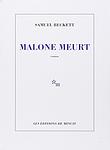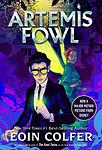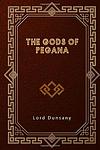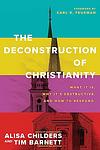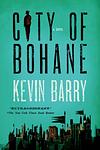The Greatest Irish, Austrian "Fictional Location" Books of All Time
Click to learn how this list is calculated.
This list represents a comprehensive and trusted collection of the greatest books. Developed through a specialized algorithm, it brings together 305 'best of' book lists to form a definitive guide to the world's most acclaimed books. For those interested in how these books are chosen, additional details can be found on the rankings page.
Genres
The "Fictional Location" category in books encompasses a broad range of literary works that are set in places conjured entirely from the imagination of the author, rather than real-world locations. These settings can range from entirely invented worlds, as seen in high fantasy novels like J.R.R. Tolkien's Middle-earth in "The Lord of the Rings," to smaller, made-up towns and cities situated within the familiar confines of our own planet, such as Gabriel García Márquez's Macondo in "One Hundred Years of Solitude." The allure of this category lies in the author's ability to craft unique environments that operate under their own set of rules, cultures, and histories, providing a rich backdrop for storytelling that can explore themes and narratives unconstrained by the limitations of reality. Whether these locations offer an escape to magical realms, dystopian futures, or alternate histories, books in the "Fictional Location" category invite readers to embark on journeys to places that exist only in the far reaches of the writer's creativity and the reader's imagination.
Countries
Date Range
Reading Statistics
Click the button below to see how many of these books you've read!
Download
If you're interested in downloading this list as a CSV file for use in a spreadsheet application, you can easily do so by clicking the button below. Please note that to ensure a manageable file size and faster download, the CSV will include details for only the first 500 books.
Download-
1. Waiting for Godot by Samuel Beckett
"Waiting for Godot" is a play that explores themes of existentialism, despair, and the human condition through the story of two characters, Vladimir and Estragon, who wait endlessly for a man named Godot, who never arrives. While they wait, they engage in a variety of discussions and encounter three other characters. The play is characterized by its minimalistic setting and lack of a traditional plot, leaving much to interpretation.
The 96th Greatest Book of All Time -
2. Molloy by Samuel Beckett
"Molloy" is a complex and enigmatic novel that follows the journey of its eponymous character, an elderly, disabled vagabond, who is tasked with finding and killing a certain person. The narrative is split into two parts: the first is told from Molloy's perspective as he navigates his way through a strange and often hostile world, while the second follows a detective named Moran who is assigned to find Molloy. The novel is renowned for its challenging narrative structure, its bleak and absurdist humor, and its profound exploration of themes such as identity, existence, and the human condition.
The 244th Greatest Book of All Time -
3. Malone Dies by Samuel Beckett
"Malone Dies" is a narrative that delves into the mind of an elderly man who lies in a decrepit room, slowly dying. Throughout the novel, the protagonist grapples with his impending demise, while reflecting on his past. He also creates characters and stories within his mind to cope with his solitude and despair. The novel, characterized by its stream-of-consciousness style and bleak outlook, is a profound exploration of the human condition, mortality, and the nature of existence.
The 358th Greatest Book of All Time -
4. The Third Policeman by Flann O'Brien
"The Third Policeman" is a darkly comedic and surreal novel about a nameless narrator who, after committing a murder to raise funds for his scholarly obsession with a bizarre pseudo-scientific theory, finds himself wandering in an eerie, nightmarish landscape. He encounters strange characters, including a pair of eccentric policemen who are obsessed with bicycles, and becomes embroiled in a series of increasingly absurd and ludicrous situations. The novel explores themes of existence, reality, and the nature of hell, with a twist ending that forces the reader to question everything they've read.
The 465th Greatest Book of All Time -
5. The Unnamable by Samuel Beckett
"The Unnamable" is a complex, stream-of-consciousness narrative that explores themes of existence, identity, and the nature of reality. The protagonist, who lacks a clear identity, is trapped in a void and continually questions his existence and reality. As he grapples with his own consciousness, he attempts to tell his story, but constantly doubts and revises it, creating a cyclical, fragmented narrative. The novel is known for its challenging, abstract prose and its exploration of existentialist themes.
The 472nd Greatest Book of All Time -
6. Endgame by Samuel Beckett
Endgame is a one-act play that follows the lives of Hamm, a blind and unable to stand man, and Clov, his servant who cannot sit. They live in a single room, with Hamm's legless parents residing in dustbins. The characters are trapped in a cyclical existence where they constantly argue and contemplate life, death, and their own existence. The play is characterized by its minimalistic setting and bleak outlook on life, reflecting themes of existentialism and the human condition.
The 1281st Greatest Book of All Time -
7. The Left-Handed Woman by Peter Handke
"The Left-Handed Woman" is a poignant, introspective novel that explores the life of a woman who decides to live alone after her husband leaves on a business trip. She attempts to find her own identity and independence by distancing herself from her usual social circles, including her young son. The novel is a deep dive into her thoughts, feelings, and experiences as she navigates her new life, offering a profound exploration of solitude and self-discovery.
The 1436th Greatest Book of All Time -
8. Watt by Samuel Beckett
The novel is a darkly comedic and absurdist exploration of the human condition. It follows the eponymous character, Watt, as he serves as a domestic servant in a bizarre, isolated household. Throughout the narrative, Watt struggles to make sense of his surroundings, the odd behavior of his master, and his own existence. The book is filled with philosophical musings, wordplay, and surreal humor, offering a unique and challenging reading experience.
The 1438th Greatest Book of All Time -
9. Artemis Fowl by Eoin Colfer
A 12-year-old genius and criminal mastermind, Artemis Fowl, kidnaps a fairy, Captain Holly Short, for a large ransom of gold with the help of his bodyguard, Butler, to restore his family's fortune. In the process, he discovers an underground world of armed and dangerous fairies. The fairies fight back with magic, cunning, and technological weapons leading to a high-stakes battle of wits.
The 1611th Greatest Book of All Time -
10. The Uses of Enchantment by Bruno Bettelheim
"The Uses of Enchantment" is a psychological analysis of fairy tales and their importance in childhood development. The book argues that these stories allow children to navigate their emotions and understand aspects of life they are yet to experience. By exploring various themes, such as separation anxiety, oedipal conflict, and sibling rivalry, through well-known fairy tales, the author demonstrates how these narratives contribute to a child's moral education and understanding of the human nature.
The 1791st Greatest Book of All Time -
11. On Aggression by Konrad Lorenz
"On Aggression" is a scientific study that explores the concept of aggression in both animals and humans from an ethological (study of animal behavior) perspective. The author argues that aggression is an innate and necessary instinct that has helped species survive and evolve. However, he also emphasizes that this instinct, when unchecked or misdirected, can lead to destructive behavior and violence. The book provides a comprehensive analysis of the biological roots of aggression, its role in the evolution and survival of species, and its implications for human society.
The 1829th Greatest Book of All Time -
12. Krapp's Last Tape by Samuel Beckett
"Krapp's Last Tape" is a one-act play about an aging man who annually records a review of the past year of his life. On his 69th birthday, he listens to a tape from 30 years earlier, where he reflects on his life at 39, his lost love, and his isolation. The play explores themes of memory, regret, and the passing of time, with the protagonist's relationship with his younger self revealing a portrait of a man in decline.
The 1929th Greatest Book of All Time -
13. The Wall by Marlen Haushofer
The book is a profound exploration of isolation and survival, following a woman who finds herself unexpectedly cut off from the rest of the world by an invisible, impenetrable wall. With the rest of humanity seemingly vanished, she must come to terms with her solitary existence in a remote forested area, accompanied only by a few animals. As she adapts to her new reality, tending to the land and the creatures that become her companions, the narrative delves into themes of self-reliance, the intrinsic connection between humans and nature, and the resilience of the human spirit in the face of unimaginable circumstances. Through her introspective journey, the protagonist examines the essence of her being and the meaning of life when stripped of society and its constructs.
The 1953rd Greatest Book of All Time -
14. What Is Life? by Erwin Schrödinger
"What is Life?" is a scientific exploration that delves into the intersection of physics and biology. The book presents the idea that life, at its most basic level, operates according to the laws of physics and chemistry. It introduces the concept of an "aperiodic crystal" that contains genetic information in its configuration of covalent chemical bonds, which later inspired the discovery of the structure of DNA. The book also discusses entropy and negentropy, suggesting that life feeds on negentropy to counteract the natural process of increasing entropy.
The 2044th Greatest Book of All Time -
15. The Tao of Physics by Fritjof Capra
The book explores the parallels between modern physics and eastern mysticism. It draws connections between quantum mechanics, relativity theory and concepts in Hinduism, Buddhism, Taoism, and Zen. The author argues that the two seemingly disparate areas of study - physics and mysticism - both seek to understand the fundamental nature of the universe and that they do so in strikingly similar ways. The book challenges conventional thinking and encourages readers to see the world from a more holistic, interconnected perspective.
The 2445th Greatest Book of All Time -
16. Room by Emma Donoghue
"Room" by Emma Donoghue is a novel about a young woman named Ma who has been held captive in a small room for seven years with her five-year-old son Jack. The story is told from Jack's point of view as he struggles to understand the world outside of Room and adjust to life after their escape. The novel explores themes of resilience, trauma, and the power of love and imagination.
The 2782nd Greatest Book of All Time -
17. The Gods Of Pegana by Lord Dunsany
This book is a seminal work in the fantasy genre, presenting a series of connected fables that weave together the mythology of a fictional pantheon. The narrative introduces readers to the creation and cosmology of a universe governed by a collection of deities, each with their own distinct personalities, powers, and domains. Through a tapestry of short stories and poetic prose, the book explores themes of creation, destruction, fate, and the nature of divinity, all set within the enchanting and timeless realm of Pegana, where gods shape the destinies of men and the world itself.
The 3206th Greatest Book of All Time -
18. The Afternoon of a Writer by Peter Handke
"The Afternoon of a Writer" is a contemplative exploration of a day in the life of a solitary writer who, after a successful morning of writing, decides to take a walk through an unnamed European city. As he strolls, he grapples with feelings of alienation and existential dread, questioning his purpose and the worth of his work. The book delves into the writer's inner struggles, his observations of the world around him, and his reflections on the act of writing itself.
The 3276th Greatest Book of All Time -
19. The Last World by Christoph Ransmayr
"The Last World" is a novel that reimagines the exile of the Roman poet Ovid in a remote village at the edge of the Black Sea. The story is set in a mythical time and place, where the villagers are haunted by strange transformations and echoes of Ovid's metamorphoses. The novel blurs the lines between the real and the imaginary, the past and the present, and the world of the living and the dead, creating a surreal and dreamlike atmosphere.
The 3382nd Greatest Book of All Time -
20. Puckoon by Spike Milligan
This comedic novel is set in 1924, revolving around the fictional Irish village of Puckoon. The story unfolds in a chaotic and humorous manner when the Boundary Commission, tasked with dividing Ireland, carelessly draws the new border straight through the village, splitting it between Northern Ireland and the Republic. The absurdity of the situation is amplified by the eccentric characters, including the protagonist Dan Milligan, who find themselves grappling with the ludicrous consequences of this division. The narrative is filled with witty dialogue, slapstick humor, and satirical takes on politics and nationalism, showcasing the author's unique comedic style and critique of bureaucracy and the absurdities of geopolitical divisions.
The 4162nd Greatest Book of All Time -
21. Study of Organic Inferiority and Its Physical Compensation: A Contribution to Clinical Medicine by Alfred Adler
This book delves into the concept of organic inferiority and how it physically manifests itself, providing significant contributions to the field of clinical medicine. It discusses the theory that certain physical and mental health issues arise from an individual's perceived inferiority and their subsequent attempts to compensate for it. The book provides a comprehensive study of this theory, exploring its implications for understanding human behavior and its potential applications in therapeutic settings.
The 4162nd Greatest Book of All Time -
22. Function of the Orgasm by Wilhelm Reich
This book presents a groundbreaking exploration of human sexuality, arguing that sexual repression leads to various psychological disorders. The author, a psychoanalyst, introduces the concept of "orgastic potency", which is an individual's ability to fully surrender and discharge pent-up sexual energy during the sexual act. He contends that societal norms and moralistic attitudes towards sex often hinder this release, leading to various neuroses and other psychological issues.
The 4162nd Greatest Book of All Time -
23. The Boy in the Striped Pyjamas by John Boyne
This novel follows the story of a young boy who moves from Berlin to a house near a concentration camp during World War II. Unaware of the grim reality of his surroundings, he befriends another boy on the other side of the camp fence. The two develop a deep friendship despite the horrific circumstances, leading to a devastating and unforgettable ending.
The 4787th Greatest Book of All Time -
24. How It Is by Samuel Beckett
The book is a challenging and experimental novel that delves into the fragmented and often bleak inner monologue of its protagonist, who finds himself lying in the mud, in a dark and indeterminate space. The narrative is characterized by its repetitive and disjointed style, reflecting the protagonist's sense of dislocation and his struggle to make sense of his existence. Through sparse and poetic language, the novel explores themes of solitude, identity, and the human condition, as the protagonist interacts with other vague figures in this desolate landscape, questioning the nature of reality and his own consciousness.
The 4793rd Greatest Book of All Time -
25. City of Bohane by Kevin Barry
Set in the year 2053, the book is a dystopian tale about the city of Bohane, a place filled with vice, violence, and tribal warfare. The city is controlled by a gangster named Logan Hartnett, who is challenged by his estranged wife Macu and her lover, a rival gang leader. The narrative is filled with colorful characters, rich language, and a unique blend of futuristic and archaic elements, creating a vivid, darkly comic vision of a future Ireland.
The 5493rd Greatest Book of All Time
Reading Statistics
Click the button below to see how many of these books you've read!
Download
If you're interested in downloading this list as a CSV file for use in a spreadsheet application, you can easily do so by clicking the button below. Please note that to ensure a manageable file size and faster download, the CSV will include details for only the first 500 books.
Download

